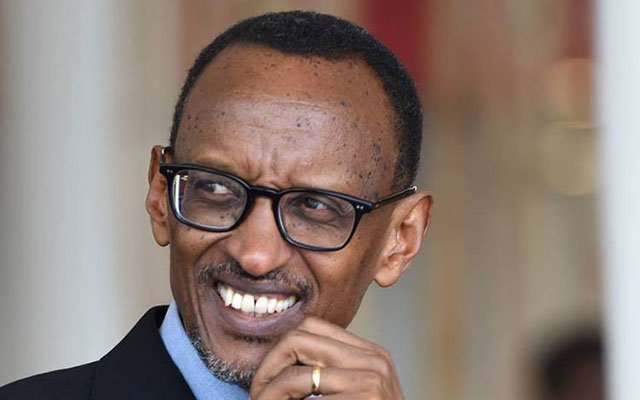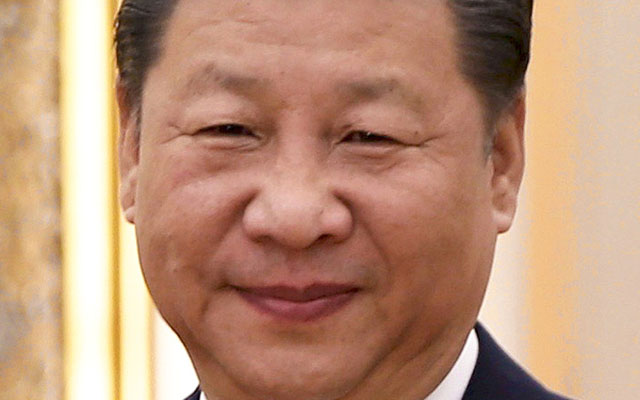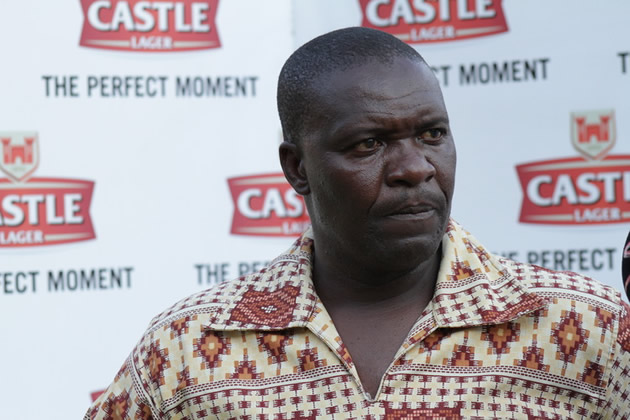Rwanda: People have spoken

Vincent Gasana Correspondent
TO make a particular point during his address at the swearing-in ceremony at Amahoro Stadium on August 18, President Kagame referred to a gospel song that had been adapted and sung by supporters during the election campaign.
“When we are fighting for a just cause, there is nothing to fear whatsoever, because God is always on our side . . .” His voice was drowned out by a chorus from the gathering in the stadium, who spontaneously took up the refrain. Religious leaders — Christian and Muslim — seated in the VIP seats, clapped hands in accompaniment to the crowd’s singing. The moment, as much as any other, symbolised the new Rwanda. To have the leaders of the Islamic faith seated with heads of the Christian Churches on an equal basis, would have been unheard of in pre-1994 Rwanda. Then, the Catholic Church’s power and influence was such that they virtually determined who governed the country. Every other religion existed at their discriminatory pleasure. And for a crowd to be free, at ease, and so engaged as to spontaneously interrupt a presidential address, would have been almost taboo.
“It is never too late to be what you should have been”, so goes the maxim. For the past 23 years, the Rwanda Patriotic Front (RPF)-led government has consciously, deliberately, driven a vision of a Rwanda that would rise out of the ashes of genocide, determined to build a nation that once was, and in their mind, should always have been, and can now be. Much of the world has little knowledge of Rwanda beyond the 1994 genocide that was planned to wipe out the Batutsi, or as they are generally referred to, the Tutsi, from the face of the earth.
But, long before the horrifying cataclysm that was to come, a group of young Rwandans, growing up in enforced exile in refugee camps in neighbouring Uganda, dreamt of a Rwanda that existed before the divide-and-rule intervention of the colonising powers, a society anchored in a homogeneous culture and shared history. On this foundation, they imagined a modern Rwanda, for all Rwandans, of whatever background. And it was with this dream foremost in their minds, after all attempts to negotiate a peaceful return to their homeland had fallen on deaf ears, that in 1990, these Rwandans forced their return to Rwanda, at the point of an AK47. Now, in his 50s, one of those idealistic dreamers was giving a presidential address at a swearing-in ceremony for his third term in office.
The RPF, a movement that had been formed to carry these ideals, never imagined that their dream of a unified Rwanda would have to be deferred, while they focused on healing a profoundly traumatised land, now barely recognisable as a nation, after a genocide that at the last count left 1 074,017 men, women and children, murdered in ways that would haunt even the most depraved. But, the vision never died. The genocide and the armed struggle that ended it, became further driving forces to fulfil the promise of a Rwanda that after such great sacrifice would now have to be. Parse every speech made by one of these Rwandans, Paul Kagame and the single-minded determination to fulfil that promise rings out clearly. His 2017 speeches on the campaign trail as candidate Kagame, then as president-elect Kagame, have been no different. More nuanced perhaps, more worldly-wise, but, always imbued with, and guided by the idealism of his youth. And where fine words about the power of education to change lives, create a better world, healthcare for all, gender equality, have always been temporary bromides that politicians the world over offer to their audiences, for President Kagame, they have always been an outline of policy to be implemented. Rwandans have become accustomed to expecting action after any such promises. This has been their experience and will be their expectation for the next seven years.
“Today is a day of renewal and gratitude,” he said, in his address.
“I would like to express appreciation to all Rwandans for renewing the trust between us . . . we have worked incredibly hard to rebuild our nation in a spirit of consensus while leaving no one behind . . .” And then, to the listening world, this: “All along, we have had to fight to protect our right to do what is best for us and we will without any doubt continue to do so.
“In this regard, Rwanda is not an exception. Every African country has to contend with efforts to force us to live on someone else’s terms . . . our experience is that we will be vilified no matter what, so we might as well do what we know is right for our people . . . There is no single model for nation-building. At the root of every success, are good choices built on a mindset which can be summarised in three words: do it yourself. That is what we have done in Rwanda . . .” And while his remarks make it clear that the government he leads will continue to chart an independent course, the message is also that it is going to be internationalist in outlook.
“We in Rwanda will continue to be firm believers in real partnership and cooperation with friends around the world, which has benefited us a great deal, and which we deeply appreciate.” It is this change within continuity that Rwandans voted for in overwhelming numbers. Change, fast change, has become the norm. By handing the RPF such a thumping majority, the electorate was opting for another seven years of change, at the familiar breakneck speed. But, if one were to believe what one reads in Western media, Rwandans are misguided and have little reason to be satisfied with their judgment and the choice they made through the ballot box.
Almost every media report on Rwanda is a variation on a theme. It is seems almost axiomatic to state early on, that President Kagame is “credited” with bringing stability and economic growth to Rwanda, but, that “rights groups” say “he rules through fear”. Kagame is “a divisive figure”, “controversial”. Close to seven million Rwandans voted in this year’s presidential elections and they beg to differ. Nearly all of them voted for the RPF and for the incumbent. For them, there is nothing “controversial” about Paul Kagame. And “divisive” seems a bizarre choice of word to describe a man who has led a government that has miraculously managed to heal and unite a nation that few, if any, believed could ever again be reunited, after a part of its population all but succeeded in executing a carefully planned extermination of another. Leading the unrelenting condemnation of the RPF are Human Rights Watch (HRW). In his scholarly paper, “The Travesty of Human Rights Watch on Rwanda”, American academic and former diplomat, Richard Johnson, says of the organisation, “What Human Rights Watch does on Rwanda is not human rights advocacy. It is political advocacy which has become profoundly unscrupulous in both its means and its ends.”
“Rwandans are living in fear”, is one of HRW’s often repeated sound bites. Repeat it often enough and it will be accepted as true. This was trotted out during the recent election campaign, prompting an ironic twitter meme, showing Rwandans voting in an almost carnival atmosphere, captioned with, “Rwandans living in fear”. For HRW, the Rwandan presidential poll was a “politically closed election”. In a report, a chronology of supposed abuses is put forward to de-legitimise the poll. The organisation asserts that “Kagame’s landslide win came as no surprise in a context in which Rwandans who have dared to raise their voices or challenge the status quo have been arrested, forcibly disappeared, or killed, independent media have been muzzled and intimidation has silenced groups working on civil rights or free speech”.
Grave allegations, persuasive by virtue of coming from such a well-respected human rights organisation, but, allegations which do not stand up to close scrutiny. HRW never has done, and would be hard-pressed to say who has been “forcibly disappeared”, an emotive phrase, chillingly evocative of the worst human rights abuses in history. On three occasions in the last five years or so, HRW, and others, including the US State Department, have alleged state murders, only to find on investigation that the supposed victims were alive and well. Instead a veil is drawn over the entire incident, until the next claim. A memorandum of understanding between HRW and the Rwandan government was initiated by the latter. It was agreed that HRW would take any concerns it had over human rights to the government.
“We have abided by that agreement,” says Attorney-General and Justice Minister Johnson Busingye, “but HRW would rather first go to the media with unsubstantiated allegations.” Most misleading of all is the claim that Rwanda “muzzles independent media”, and shuts down opposition voices. This is an allegation echoed by Reporters without Borders. Interestingly, all repeat the same two or three examples from the last 20 years. It is true that Rwanda has withdrawn licences from some newspapers like Umuseso. But what is never acknowledged is that many of these publications, which mushroomed in the 1990s, after the genocide of Batutsi, were funded by individuals whose clear aim was to muddy the waters about the planning and execution of the genocide.
The RPF-led government was left with the option of allowing such voices to flourish, or be accused of “muzzling independent media”. They decided that being called a “Press predator” was a price worth paying for safeguarding national reconciliation and stability. It is worth noting that such publications would have met the same or a similar fate in countries like Germany, Israel and several other EU member states, which have specific laws against genocide denial. The development of media in Rwanda since 1994 makes a nonsense of claims of media suppression. Before 1994, Rwanda had one broadcaster, the state broadcaster, one authorised newspaper, run by the Catholic Church, and no opportunity for the study of or training of journalism. Since 1994, broadcasters and publications have proliferated and the government supports and encourages a number of journalism schools.










Comments